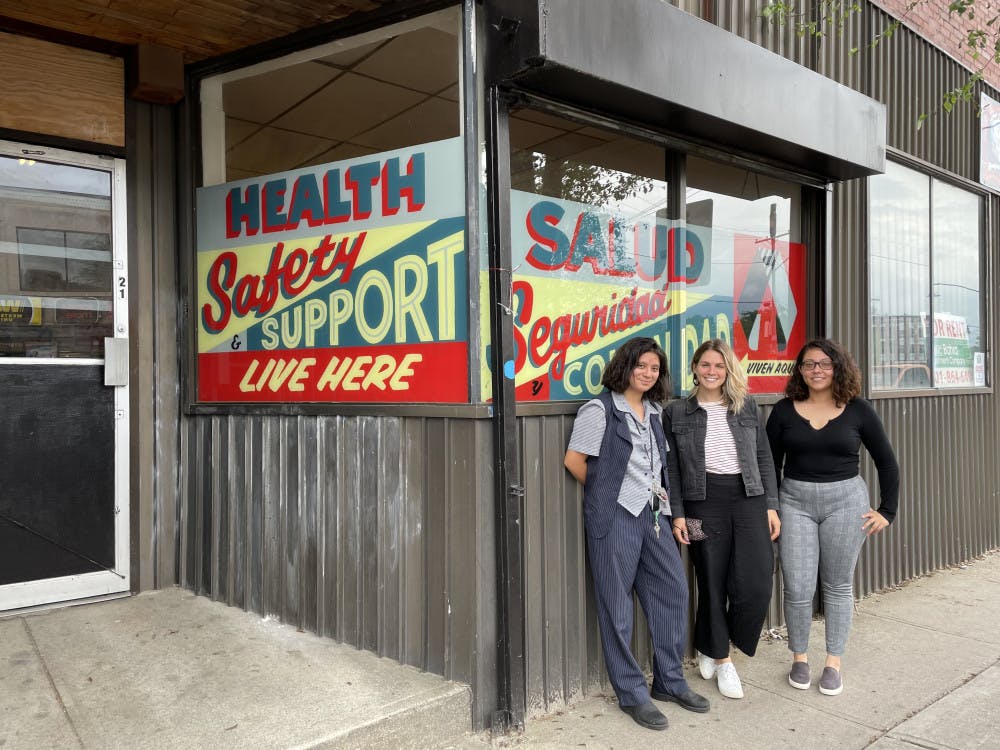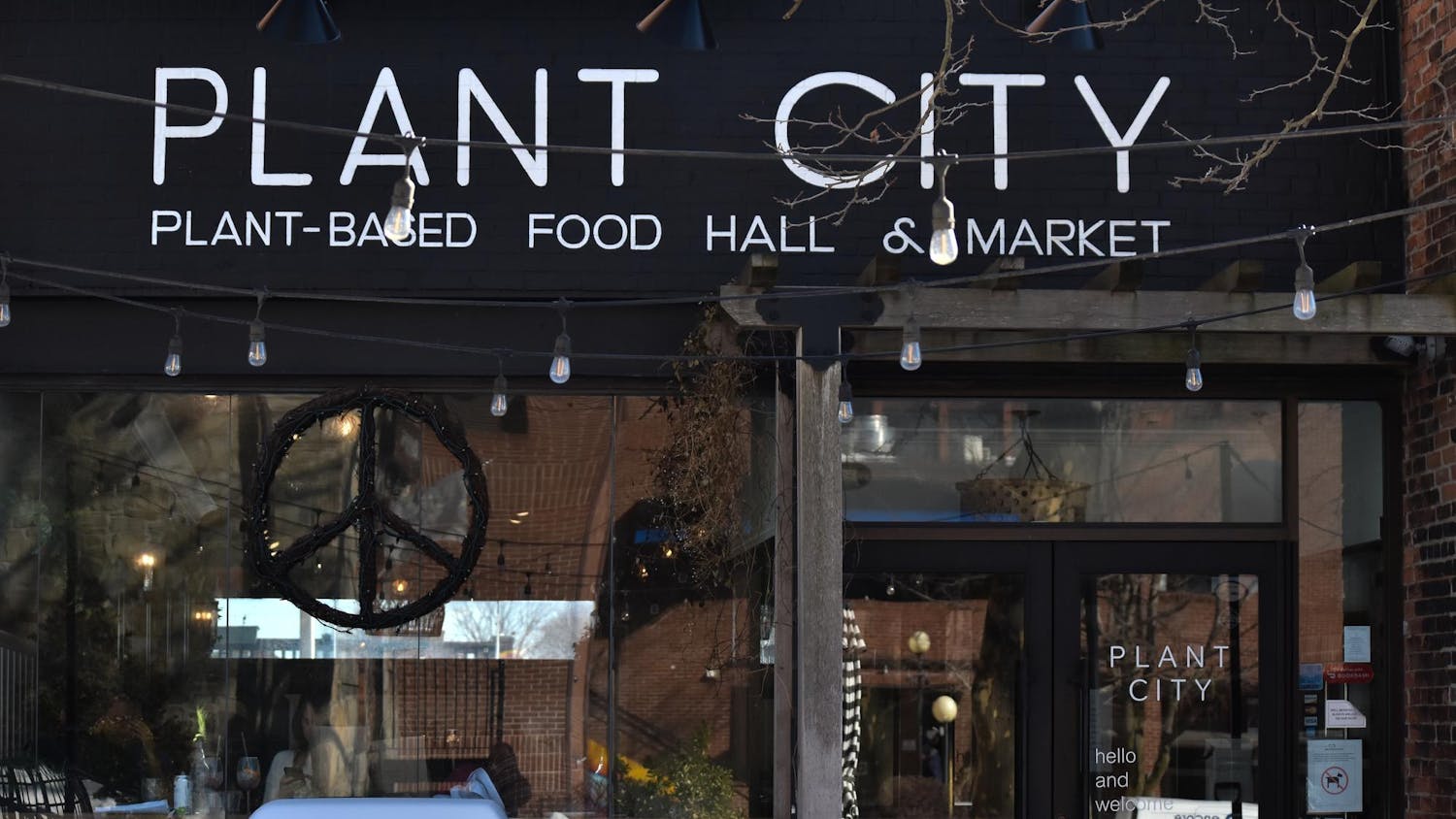On Olneyville Square, a new colorful window display announces that “Health, Safety & Support Live Here.” Project Weber/RENEW, a nonprofit harm reduction organization currently headquartered on Broad Street in Providence, opened a new location in Olneyville May 26 and is in the process of opening another in Pawtucket. The Olneyville center is intended to serve as a safe space for counseling and support and will distribute safe injection kits, fentanyl test strips, condoms, clothes and other health resources.
Project Weber originated as an organization focused on providing free health resources to male sex workers. Five years ago, it merged with RENEW, an organization that supports female sex workers. Today, PWR serves transgender and non-binary communities as well as populations at high risk for HIV infection and overdoses.
“Our goal is to just to be a safety net for communities that don't have other supports, and we’ve been able to do that with folks who use drugs and folks engaged in sex work,” said Kayla Pimentel, director of community engagement and manager of the Olneyville site.
The organization identified Olneyville as one particularly vulnerable community where many people are at risk for overdose and HIV infection, making it a logical option for their next location. “We definitely have seen an increase in overdose deaths in this area, or just overdoses in general,” Pimentel said. “We just saw an opportunity to just branch out to a different part of the city that definitely needed our services.”
PWR aims to support people who use drugs through a public health approach known as harm reduction. Harm reduction focuses on minimizing risk and harm without forcing people to fundamentally alter their behavior or cease it altogether, said Dr. Brandon Marshall, associate professor of epidemiology at the School of Public Health. Harm reduction is commonly applied to drug use, especially in light of the ongoing opioid crisis.
“One major problem that continues to drive and exacerbate the overdose crisis is the presence of fentanyl in the illicit and the unregulated drug supply,” Marshall said. Fentanyl is a potent, synthetic opioid that is often found in other drugs without the user’s knowledge. “People that are using stimulants like cocaine, crack, crystal methamphetamine, may be at risk for opioid overdose because of fentanyl present in those substances that they don't intend to be there,” he added. Tools of harm reduction include fentanyl test strips and naloxone, a drug which reverses overdoses.
Syringe service programs — another form of harm reduction — aim to encourage safe drug use. “These programs provide sterile needles and syringes and other equipment to people who are injecting drugs,” Marshall said. “The goal is to allow folks to inject more safely, to avoid risks of blood-borne infections like HIV or hepatitis C and also to protect their partners and networks.”
According to Marshall, organizations such as PWR are critical to destigmatizing health issues and forming a network of support within the community, especially for those who have historically had negative experiences with the healthcare system. “A lot of people experience a number of barriers trying to access basic services,” he said. “Many people who are using injection drugs don't have adequate access to transportation, and many people are living on the street or are unsafely housed.”
Organizations such as PWR might encounter pushback from communities who don’t want to bring a harm reduction center into their neighborhoods — “Not in My Backyard-ism” or “NIMBYism,” Marshall said.
“One big misperception that I often come across is that these programs somehow encourage or enable drug use, which is patently false,” he said. “In fact, most harm reduction programs provide linkages to other resources including treatment.”
PWR did not experience this type of backlash, and was welcomed by the Olneyville community, according to Pimentel. The center received support from community members and organizations, including Lieutenant Governor Sabina Matos and the Olneyville Neighborhood Association, she added.
Before the new location opened, Olneyville didn’t “have an organization or group that work(ed) with folks (who were) directly dealing with opioids or addiction,” the Neighborhood Association’s Outreach Coordinator Enrique Sanchez said, reiterating their support for the new center and eagerness to collaborate with them.
The next step for PWR is expanding outreach to those living in and around Olneyville.
Additionally, outreach necessitates an understanding of cultural barriers to confronting addiction. For example, Pimentel said, “a lot of Spanish-speaking families and homes either didn't want to talk about (drug use) as an issue or didn't acknowledge it, but the data shows that it is happening in this area. And so, what we want to try to do is to develop ways to (reach out) to those communities in a way that resonates with them.”
PWR is striving to deepen their roots in the neighborhood by working with partners including ONE Neighborhood Builders, a nonprofit organization that develops affordable housing. ONE|NB helps to identify and write grants for PWR to address the causes of health disparities in the Olneyville and Smith Hill neighborhoods, ONE|NB Assistant Director of Community Health Karen Zuniga said.
“It's really exciting to see all of this support behind what we're doing,” Pimentel said. “We want people to make healthy decisions for themselves, but we also love them and support them, regardless of what stage they're at in their life, and I think that is super powerful.”
Ashley Guo is an arts & culture writer and layout designer. She previously covered city and state politics as a Metro section editor. In her free time, Ashley enjoys listening to music, swimming, and reading!





